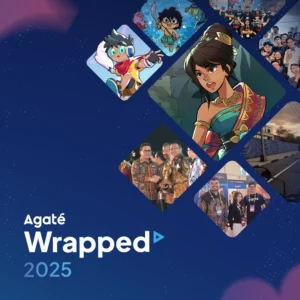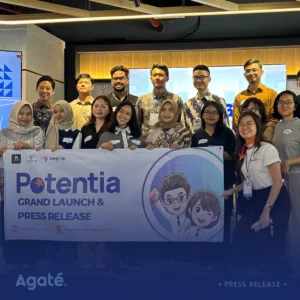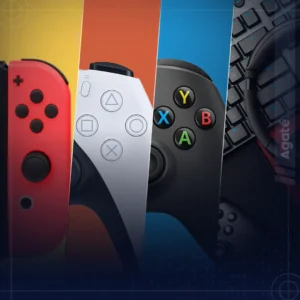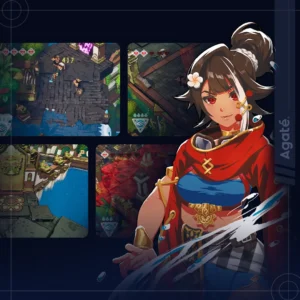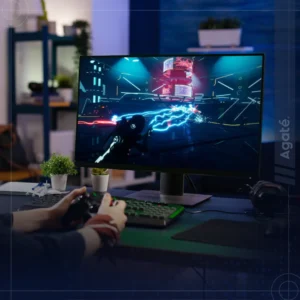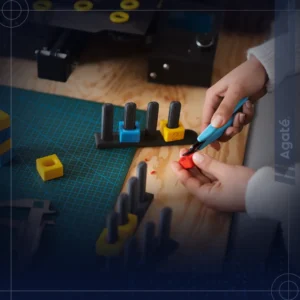Over the past few years, the world of gaming has undergone a significant transformation. With the advent of blockchain technology, the gaming industry has been revolutionized, and a new era of gaming has emerged, and it is Web3 games. We have all been promised a utopia where we can make money by playing games and, at the same time, provide jobs through games in the world of web3. This huge phenomenon has been getting all the buzz, from developers to players and non-players worldwide. However, things have not turned out as we had hoped. The question is, can we start making web3 games? The answer is yes, and here’s why!
The Promise of Web3 Games
Web3 games offer a new level of ownership and control for players. Unlike traditional games, where players are subject to the rules and restrictions imposed by game developers and publishers, Web3 games allow players to own their in-game assets and characters as non-fungible tokens (NFTs) on the blockchain. This means that players can trade, sell, or lend their NFTs to other players or platforms without any intermediaries or fees. Moreover, players can also participate in the governance and decision-making of the game through decentralized autonomous organizations (DAOs), where they can vote on game updates, features, and policies.
Web3 games provide a new source of income and opportunity for players. By playing Web3 games, players can earn cryptocurrencies or tokens that can be exchanged for real money or other digital assets. Some Web3 games also reward players for contributing to the game development or community, such as creating content, providing feedback, or promoting the game. Additionally, Web3 games enable players to access a global and open market where they can find new audiences, partners, and collaborators for their gaming activities.
These types of games foster a new culture of innovation and creativity for developers. With Web3 games, developers can leverage the power and potential of blockchain to create novel and immersive gaming experiences that aren’t possible with traditional platforms. For instance, developers can use smart contracts to create dynamic and interactive game logic that can adapt to the player’s actions and choices. Developers can also use decentralized storage and computation networks to ensure the security and scalability of their game data and logic. Furthermore, developers can benefit from the network effects and interoperability of Web3 games, where they can integrate their games with other platforms and protocols to enhance their game features and functionality.
The Reality of Web3 Games
While the promise of Web3 games is exciting, the reality is that the industry is still in its early stages. There are only a few Web3 games available, and they are not as popular as traditional games. The reason for this is that they are still relatively unknown, and many people are hesitant to try them out. Additionally, the games are still in development, and there are many bugs and glitches that need to be fixed.
Can We Start Making Web3 Games?
The answer is yes. Despite the recent controversy over the future of web3, many developers and enthusiasts have moved past it and continue to pursue their vision of a more open and fair gaming industry. There are already some examples of successful web3 games that show the potential and benefits of web3 gaming, such as creating new revenue streams for players and developers, fostering community engagement and governance, and enabling new forms of gameplay and creativity.
However, it requires a lot of knowledge and expertise. It requires a lot of knowledge and expertise in various fields, such as cryptography, smart contracts, game design, user experience, and scalability. Developers need to have a deep understanding of blockchain technology and decentralized platforms. They also need to be familiar with programming languages such as Solidity, which is used to create smart contracts on the Ethereum blockchain. Creating a Web3 game is not an easy task, but it’s possible for those who are willing to put in the time and effort.
One of the ways to overcome the challenges of making web3 games is to form strategic partnerships with other developers and publishers who share the same vision and goals. By collaborating with others, web3 game developers can leverage their combined resources, expertise, and networks to create more innovative and engaging games that appeal to a wider audience. Moreover, partnerships can help web3 game developers to access existing platforms and ecosystems that support web3 gaming, such as blockchain protocols, wallets, marketplaces, and communities.
The Future of Web3 Games
The future of Web3 games is promising. As the industry continues to grow, we can expect to see more games being developed and more players joining the Web3 gaming community. The potential for earning cryptocurrency while playing games is a significant draw for many players, and it is likely that this trend will continue to grow. Additionally, as technology improves, we can expect to see more advanced and sophisticated Web3 games being developed.
Conclusion
Web3 games are not just a hype or a fad. They are a paradigm shift that will redefine the gaming industry and create new value and opportunities for both players and developers. Web3 games have ushered in a new era of gaming, offering players ownership, control, and new sources of income. These games provide players with the ability to own in-game assets as NFTs on the blockchain, trade them freely, and participate in game governance through DAOs. Players can also earn cryptocurrencies or tokens by playing Web3 games, contributing to game development, or engaging with the community.
For developers, Web3 games unlock a realm of innovation and creativity by leveraging blockchain technology to create immersive gaming experiences and tap into network effects and interoperability. However, the industry is still in its early stages, with limited availability and popularity compared to traditional games. Despite the challenges, many developers and enthusiasts are actively pursuing their vision of a more open and fair gaming industry. Strategic partnerships can help overcome these challenges by combining resources and expertise. The future of Web3 games looks promising, with the potential for continued growth, more sophisticated games, and an expanding community of players earning cryptocurrency while enjoying immersive gameplay.
Are you looking for co-development, art services, or game porting? Look no further than Agate!
Don’t hesitate to get in touch with us today and learn more about how we can help you take your project to exceptional heights.

